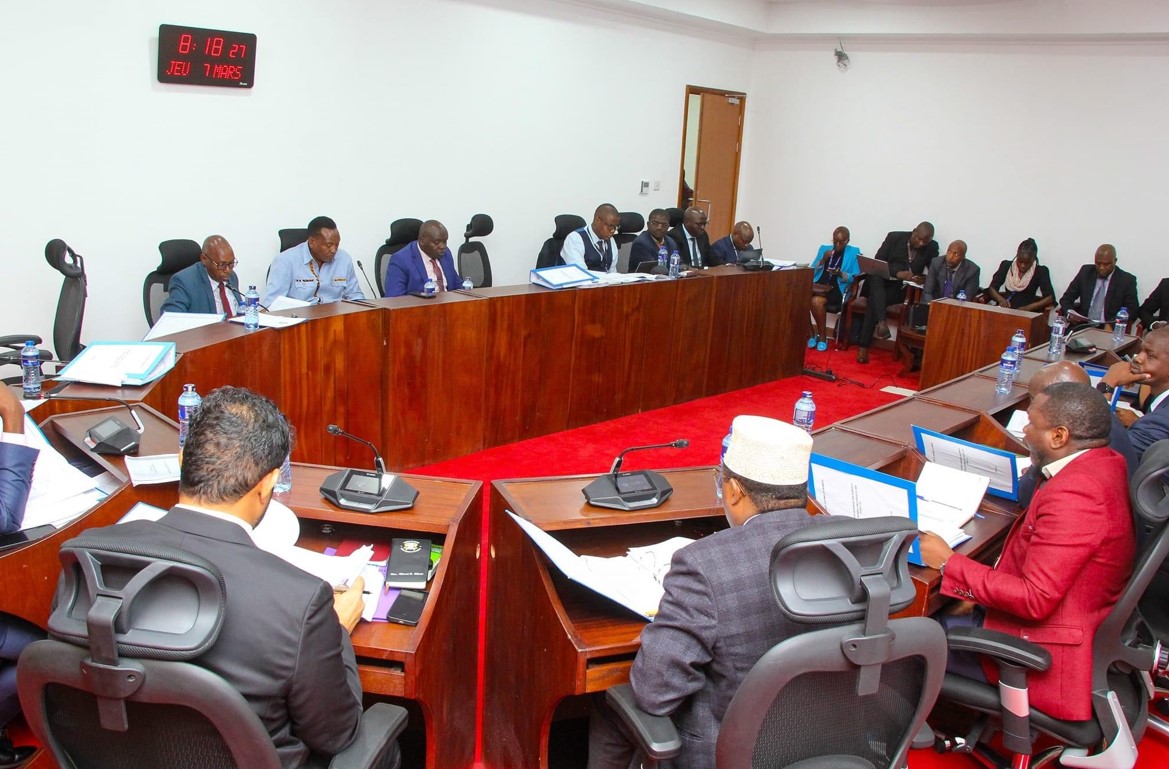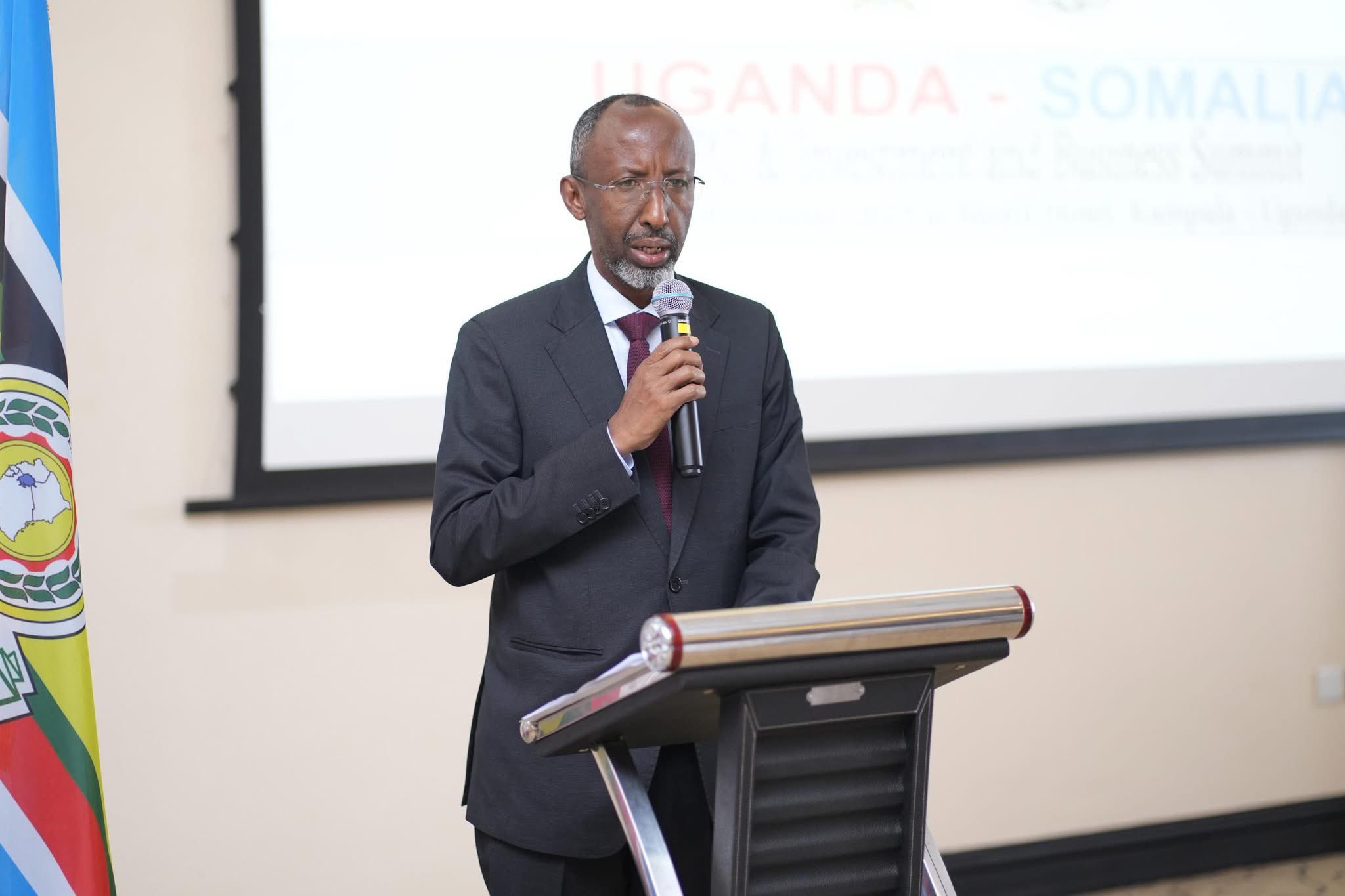Senators push for tougher measures to prevent governors from evading accountability

The Senate is pushing for a resolution that will allow the simultaneous tabling of audit reports for all 47 counties to fast-track scrutiny and prevent governors from exploiting legal loopholes to evade accountability.
The Senate Public Accounts Committee is pushing for a resolution that will allow the simultaneous tabling of audit reports for all 47 counties to fast-track scrutiny and prevent governors from exploiting legal loopholes to evade accountability.
To comply with a court ruling requiring the Senate to consider audit reports within three months, the committee plans to introduce a motion allowing the reports to be debated at once.
More To Read
- Rival Isiolo speakers face Senate over audit failures
- Governance Committee orders mandatory audit attendance for university heads
- MPs demand answers from NITA on missing funds, controversial land deal
- National, county governments fail to implement 79 per cent of audit recommendations - Auditor General
- Counties rush to spend Sh30.99 billion disbursed before end of financial year
- Senate convenes special sitting to debate key county revenue bills
This approach is expected to streamline the process and ensure action is taken against governors who misuse public funds.
Homa Bay Senator Moses Kajwang', who chairs the committee, stated that the move would enable the Senate to take a clear position on audit reports before summoning specific governors for questioning.
"This resource gap is a clear indication that learners at various levels are not funded as expected based on existing policies on funding," Kajwang' said.
"We are aware of the plan by governors to use the judgment to evade accountability, but we will beat them in their own game," he added.
The ruling by Justice Jairus Ngaah emphasised the mandatory nature of constitutional timelines for audit report reviews.
"A declaration is hereby issued that the constitutional timelines spelt out in Article 229(4) and (8) of the Constitution and sections 48 and 50 of the Public Audit Act, 2015 are mandatory and must be complied with," the judge ruled.
During a recent retreat in Naivasha, the committee recommended strict measures, including professional sanctions, suspension of funds, and criminal investigations against governors receiving disclaimer or adverse audit opinions.
A disclaimer opinion indicates insufficient evidence to assess financial propriety, while an adverse opinion means financial statements do not fairly present a county's financial health.
Administrative action
The committee also proposed administrative action for governors receiving a qualified opinion, which suggests financial issues that could impact institutional stability.
Meanwhile, governors with unqualified opinions, indicating clean financial records, may receive a fiscal responsibility award.
Kitui Senator Enock Wambua called for a shift in focus to audit reports from the last two years to address current issues.
"Mr Chairman, I would urge this committee that we concentrate more on audited reports for the last two years so that we deal with current issues," he said.
To enhance oversight, the committee plans to conduct county visits to inspect projects that have received substantial funding but remain incomplete.
"It is time to move out of the committee rooms and go to counties. We want to see these projects that have been funded for the last two and a half years. We are coming for you; both the corrupt governors and county officials," Kajwang' warned.
Nairobi Senator Edwin Sifuna echoed this, criticizing governors for resisting Senate oversight visits.
"I know governors don't want to see senators on the ground. But we cannot continue to be in these rooms; in the next two and half years, we must move out," he said.
The committee has also scheduled a meeting with Ethics and Anti-Corruption Commission (EACC) CEO Abdi Ahmed Mohamud to discuss the agency's response to corruption in counties.
"We want to hear from the CEO about his commitment to tackling corruption in the counties and why he has not been going for thieves in counties," Kajwang' said.
With these measures, the Senate aims to close accountability gaps and ensure proper management of county resources.
Top Stories Today














































